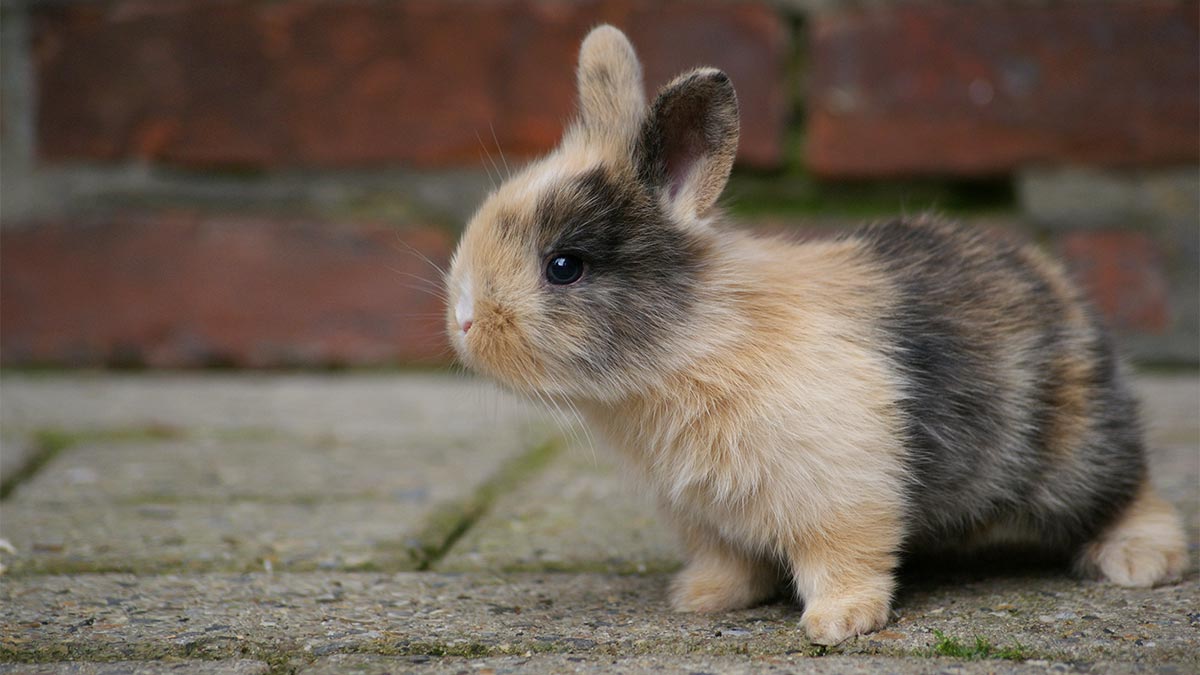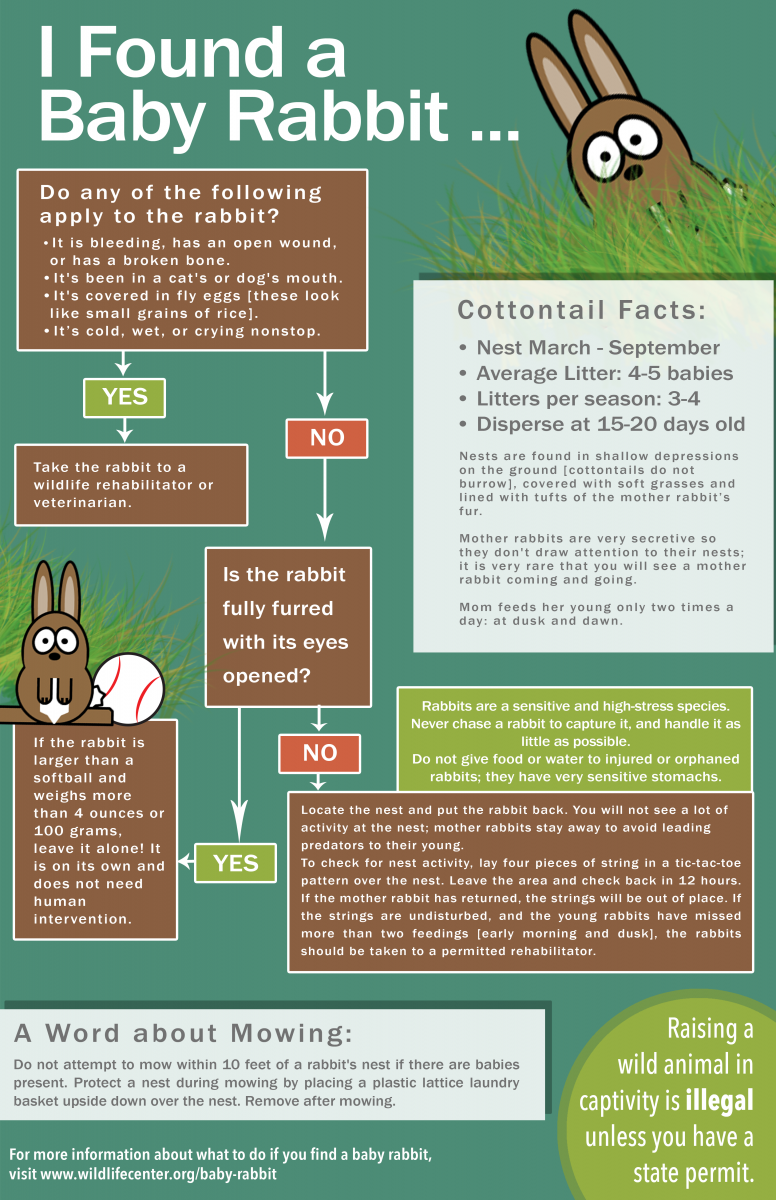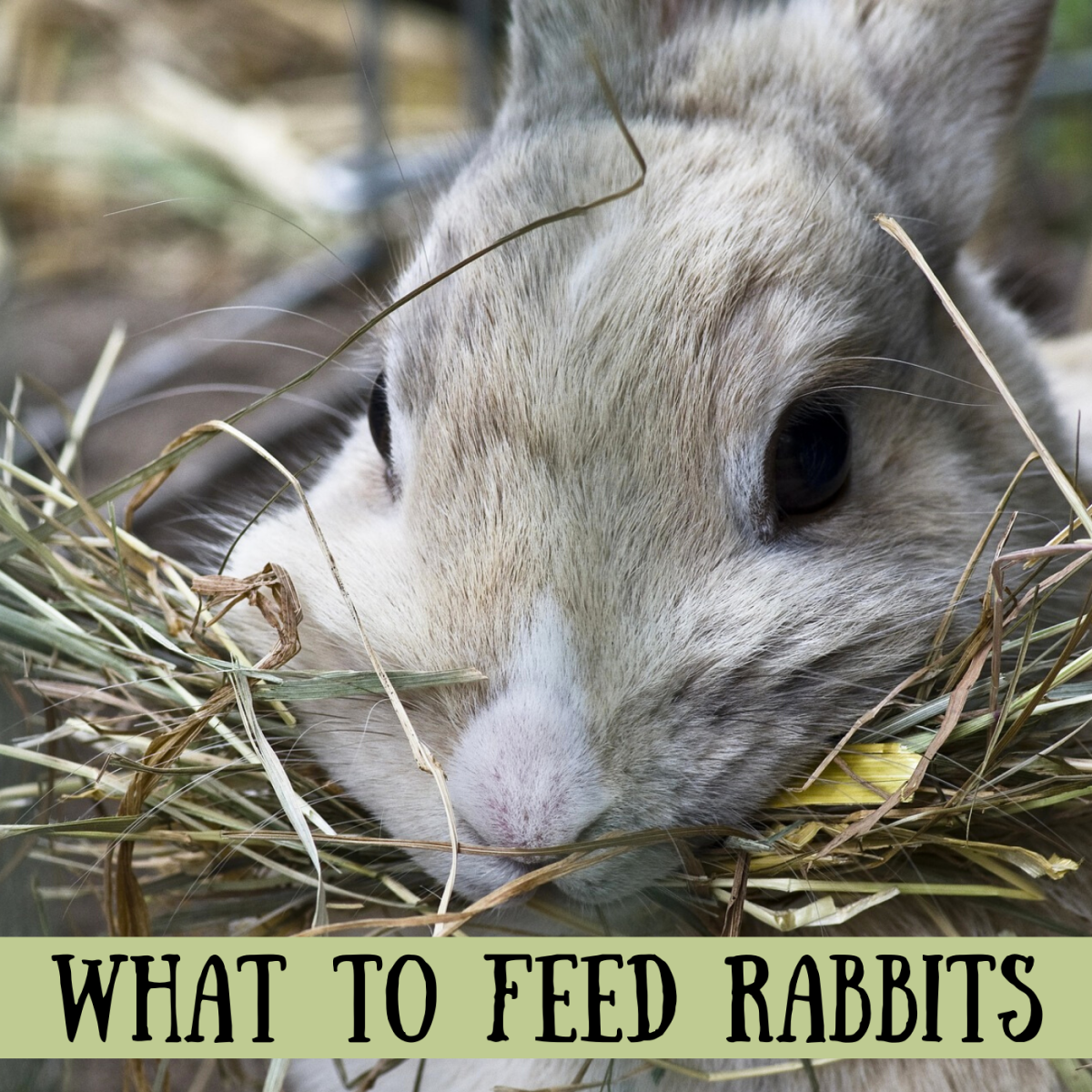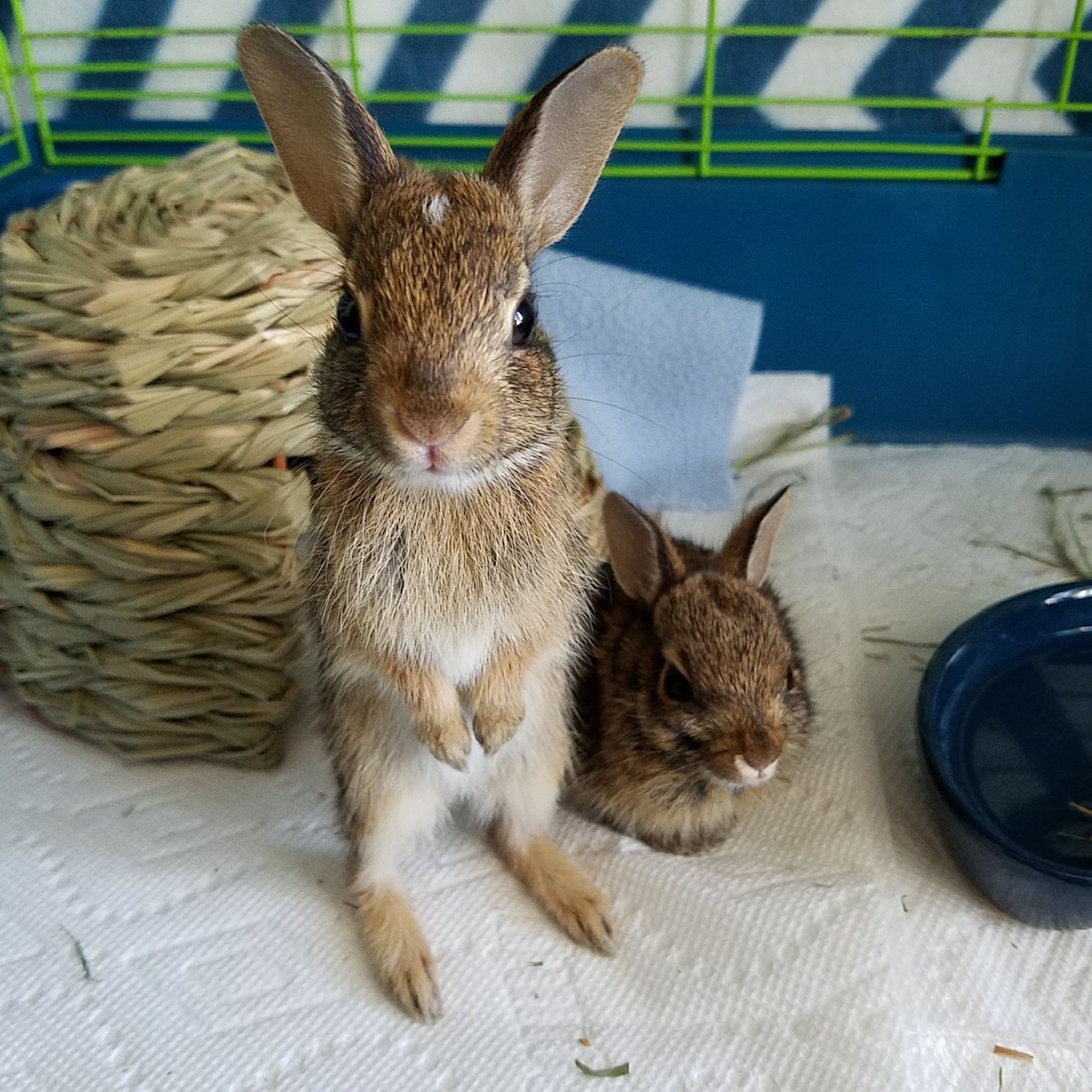If you’re like most people, you’ve probably wondered how long do rabbits nurse their young? Although rabbits are popular pets, there is still much that remains unknown about their nursing habits. This article will explore the mystery of how long do rabbits nurse their young and provide some important tips for taking care of a nursing rabbit. Learn about the different stages of nursing and how to keep your pet healthy and happy during this important period of its life.
What Does a Baby Bunny Look Like?

A baby bunny, also known as a kitten, is a small, furry creature with short ears and a short tail. They are usually gray, white, or brown in color, with some variations.
- Their eyes are closed at birth and are typically open after two weeks.
- At birth, a baby bunny’s fur is short and soft.
- Their feet are relatively large compared to their bodies.
- Baby bunnies are often very curious and playful.
Baby bunnies need to be nursed continuously for the first few weeks in order to reach adulthood. They are entirely dependent on their mother for food, warmth, and protection. Mother rabbits will nurse their kittens for an average of four weeks, but this can vary depending on the breed and size of the rabbit.
How Long Do Rabbits Nurse?

How Long Do Domestic Rabbits Nurse?
Domestic rabbits typically nurse for about 6 to 8 weeks. During this time, baby rabbits, or kits, will have their eyes and ears open, and they will have fur. They will also start to develop the long ears and fluffy fur that is characteristic of adult rabbits. As the kits grow older, they will begin to explore their environment and feed on solid foods. By the time they are 8 weeks old, the kits are usually ready to leave the nest and begin to live independently.
How Long Do Wild Rabbits Nurse?
Wild rabbits usually nurse their kits for a slightly longer period of time, usually around 8 to 10 weeks. During this time, their kits will also have their eyes and ears open, as well as some fur. By the time they are 8 weeks old, the kits will be able to explore their environment and feed on solid foods. However, the kits will continue to nurse for another 2 weeks in order to become fully independent.
What does a baby rabbit look like? A baby rabbit, or kit, will have its eyes and ears open, and it will have some fur. The kit will typically have short ears and a less fluffy coat than an adult rabbit. As the kit grows older, its ears will become longer and its fur will become fluffier.
What Does a Baby Rabbit Eat?

Baby rabbits are born with fully furred bodies and open eyes, and their diet will vary depending on their age. During the first week of life, they will feed on their mother’s milk, which is rich in protein and fat. As they grow older, they will begin to eat solid foods such as hay, vegetables, and grains.
- 1-2 Weeks: Milk from their mother.
- 2-4 Weeks: Solid foods such as hay, vegetables, and grains.
- 4-7 Weeks: Increase the amount of hay, vegetables, and grains.
- 7-10 Weeks: Rabbit pellets and hay.
- 10-16 Weeks: Rabbit pellets, hay, and a few vegetables.
- 16+ Weeks: Rabbit pellets, hay, vegetables, and a small amount of fruit.
It is important to note that baby rabbits should not be fed an adult diet as their bodies are not yet fully developed and may suffer from nutritional deficiencies. Therefore, it is crucial to feed them a diet that meets their nutritional needs. A baby rabbit should also not be fed any treats, such as carrots or apples, as these can cause digestive upset.
In addition to a healthy diet, baby rabbits need plenty of fresh water and hay. The hay should be fresh and clean and should be replaced daily. Water should be changed daily as well. It is also important to ensure that the baby rabbit is not exposed to any chemicals or other toxins that could be harmful to their health.
Interaction between Mother and Baby Bunny

- Scent-marking: Rabbits communicate with each other through scent-marking. The mother bunny will leave her scent on the babies, which serves as a way for the babies to recognize her. This is also how the mother bunny can distinguish her own babies from other bunnies.
- Grooming: The mother rabbit will groom her babies as a way to keep them clean. She will also groom them to stimulate circulation.
- Nursing: The mother rabbit will nurse her babies for up to five weeks. During this time, she will provide them with the necessary nourishment to help them grow and develop.
- Protection: The mother rabbit will protect her babies from potential predators and other dangers. She will also provide warmth and shelter to keep them safe.
- Teaching: The mother rabbit will teach her babies how to find food and will provide them with guidance on how to survive in their environment.
Health Issues in Baby Rabbits
- Malocclusion – Malocclusion is an overgrowth of the incisor teeth which causes the teeth to not meet properly when the rabbit closes its mouth. It is a common health issue in baby rabbits and can be easily treated if caught early.
- Snuffles – Snuffles is a common respiratory infection in rabbits which can be caused by stress, poor diet, or a weakened immune system. It is most common in baby rabbits and can be treated with antibiotics.
- Gastrointestinal Stasis – Gastrointestinal stasis is a condition in which the digestive system of a rabbit slows down or stops functioning. It can be caused by a variety of factors, including stress, poor diet, or a weakened immune system. It is especially common in baby rabbits and can be treated with antibiotics, special diets, and/or supportive care.
- Mites – Mites are small parasites that can live on the skin of a baby rabbit and cause intense itching and irritation. They can spread quickly if not treated, so it is important to take your baby rabbit to the vet if you suspect they have mites.
- Flystrike – Flystrike is a condition caused by flies laying eggs on the skin of a rabbit. The eggs hatch into maggots which feed on the rabbit’s skin, causing severe irritation and pain. It is most common in baby rabbits, as they are more vulnerable to flystrike due to their small size.
Frequently Asked Questions
How Often Should a Rabbit Nurse?
Newborn rabbits will nurse every 1-2 hours. This routine should continue until they are 8-10 weeks old. After 8-10 weeks, you may begin to wean them off nursing by gradually reducing the number of times they nurse each day. Once they are a few months old, they should no longer need to nurse.
What Kind of Nutrition Do Baby Rabbits Need?
Baby rabbits require a diet high in protein and calcium to grow and thrive. It’s important to feed them hay, fresh vegetables, and a balanced diet of pellets. They can also benefit from occasional treats such as fruit, raisins, and nuts. It’s important to avoid foods that are high in sugar and fat as these can lead to health problems. It’s also important to ensure that their water supply is always clean and fresh.
What are signs that a Rabbit is Weaning Itself?
Rabbits typically begin to wean themselves naturally at around 4-6 weeks of age. Signs that a rabbit is weaning itself include: decreased nursing, loss of interest in the mother’s milk, and increased interest in solid food. Additionally, the rabbit may become more independent and start to explore its environment more.
Are there any risks associated with nursing a baby rabbit?
Yes, there are certain risks associated with nursing a baby rabbit. The main risk is the potential for the baby rabbit to contract a bacterial infection from the mother rabbit, which could be fatal. Additionally, a mother rabbit could abandon her litter, leaving the baby rabbits without proper care. Additionally, a baby rabbit may not be able to nurse if the mother rabbit’s milk supply is not sufficient. Finally, there is a risk of the baby rabbit developing digestive problems if the milk is not of good quality.
Is it Possible to Nurse a Baby Rabbit That Has Been Separated from Its Mother?
Yes, it is possible for humans to nurse baby rabbits that have been separated from their mothers. However, it is important to note that the success rate is very low and it is not recommended to attempt without the guidance of a veterinarian or rabbit expert. Hand-raising a baby rabbit requires a lot of time, patience, and dedication and is not an endeavor to be taken lightly. If the baby rabbit is in good health, it is best to reunite it with its mother if possible.
Conclusion
Rabbits are unique animals that require special care and attention. Nursing is an important part of raising healthy and happy rabbits. While the exact length of time that a rabbit will nurse can vary based on the age and health of the rabbit, most rabbits nurse for about 4-6 weeks. During this time, the mother rabbit will provide her young with essential nutrients and antibodies to support their growth and development. Providing the mother and her young with a safe and secure environment is essential for successful nursing.
